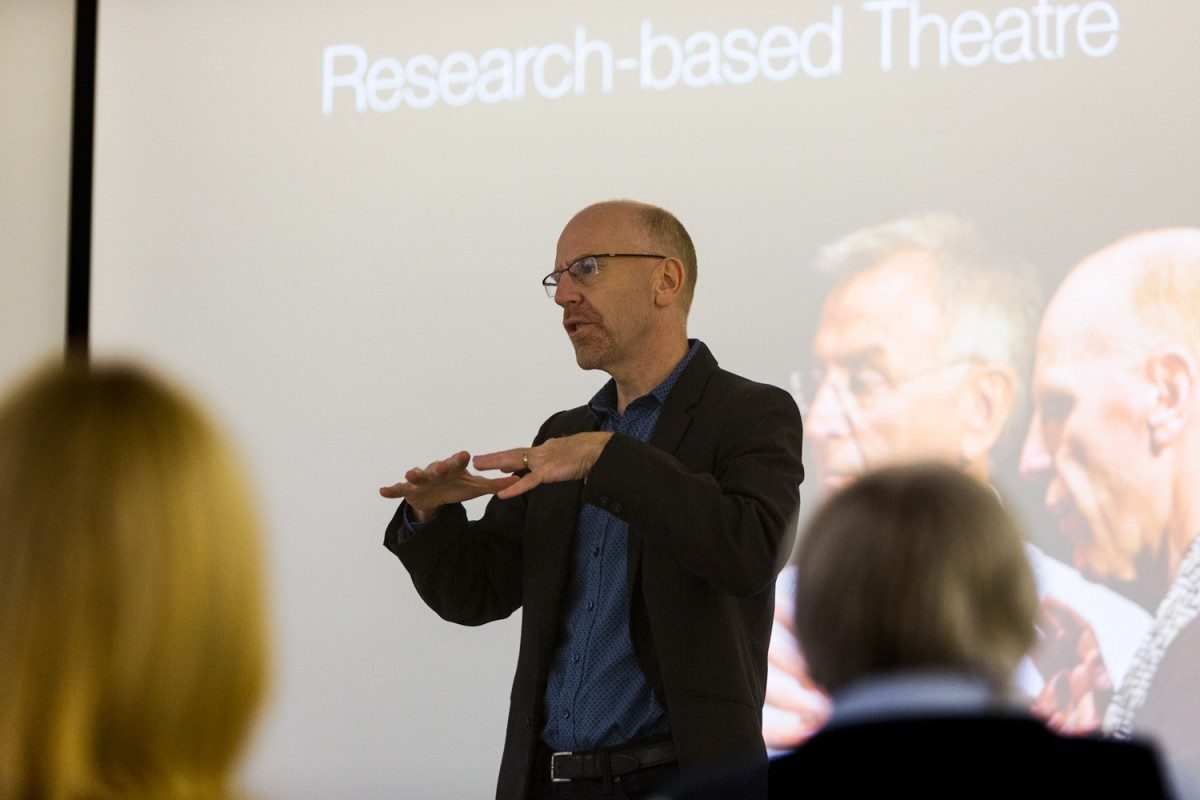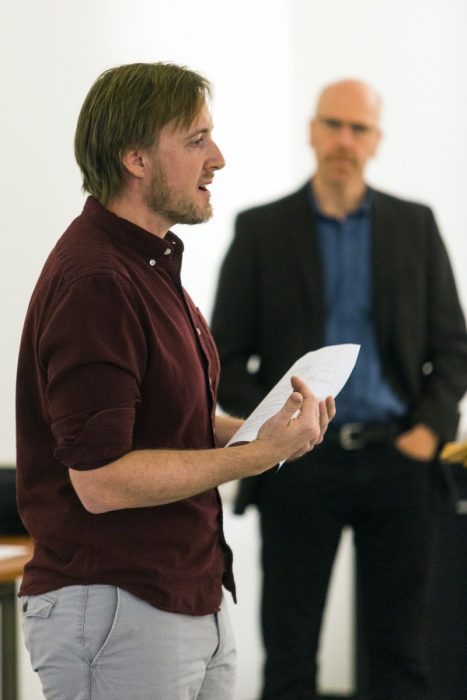
Belliveau details experiences in research-based theatre with Contact!Unload. In an interview after the lecture, talked about ways theatre-based research could be used in schools.
Acting up in class
Professor supports theatre in schools
Dr. Alysha Farrell realized the power of theatre in the classroom when a student, acting out a scene, pulled a punch an inch from a classmate’s nose.
A newcomer to Canada with a troubled past, the boy was getting a reputation as a troublemaker at Gordon Bell High School. Recognizing the potential of theatre to provoke discussion of difficult subjects, Farrell invited the student onstage to play out a scenario with a peer where two students accidentally bump shoulders.
“I was really glad at that point that he didn’t punch the other person in the nose,” Farrell says. “I asked the other students, ‘Okay, what happens next?’ ”
The students talked about it, suggesting he’d get sent to the office, get suspended or worse.
Farrell then invited other students onstage to explore what they would do in the same situation. She kept an eye on the troublemaker, who looked on, growing increasingly frustrated on the sidelines.
“He said: Miss Alysha, I want to try again.”
The boy jumped onstage, and ran through the scene again. This time, he raised his fist again, and then paused, before lowering it back to his side.

Faculty of Education Assistant Prof. Graham Lea discusses the ideas surrounding research-based theatre in the production of Contact!Unload
“I posed the question to the group: What kind of kind of courage does it take for a young man to move his fist from here to here?” Farrell said. “And the kids gave all of these beautiful and difficult answers to that question.”
The exercise also provided the boy, a new Manitoban, with the opportunity to talk about life in his home country, where he literally had to fight every day to avoid being picked on, and how those strategies were not serving him well in Winnipeg.
“I have always appreciated the power of drama to open up difficult conversations with kids,” Farrell says. “I often use drama when I was a classroom teacher, and often use it with the teacher candidates that I work with to talk about and unpack difficult conversations about what it means to become a teacher.”
Now an assistant professor at Brandon University in the faculty of education, Farrell was among many scholars in the crowd attending a lecture by George Belliveau, director of Contact!Unload, a theatrical production where military veterans recreate their struggles and experiences onstage as a part of a research-based project to build resilience as they transition to civilian life from military service.
Belliveau says he also sees potential for using research-based theatre in the classroom to address trauma, as classrooms see more refugee students, and as teachers address the issue of reconciliation and its effects.
“These children are coming from places of great trauma, and for some of them, their parents have been able to mask it from them, but we know very well that intergenerational trauma exists,” Belliveau says, adding that he is currently working on theatre projects involving the children and grandchildren of residential school survivors.
The solution is to create a safe space for students to discuss their emotion, Belliveau says.
“It’s not that you’d want to expose these kids to inner struggles, but (research-based theatre) can create a space where — if it’s done thoughtfully with the drama educator or the teacher — at least they can start sharing their narratives.”
Regarding Contact!Unload, Belliveau says he is developing an adapted version of the play that reverses the roles of the actors and the veterans—in this case, the veteran encourages the civilian to talk about open up about their traumatic experience.
“So that it allows the audience the idea that I am not a military veteran but I’ve experienced something in my own life,” he says.






